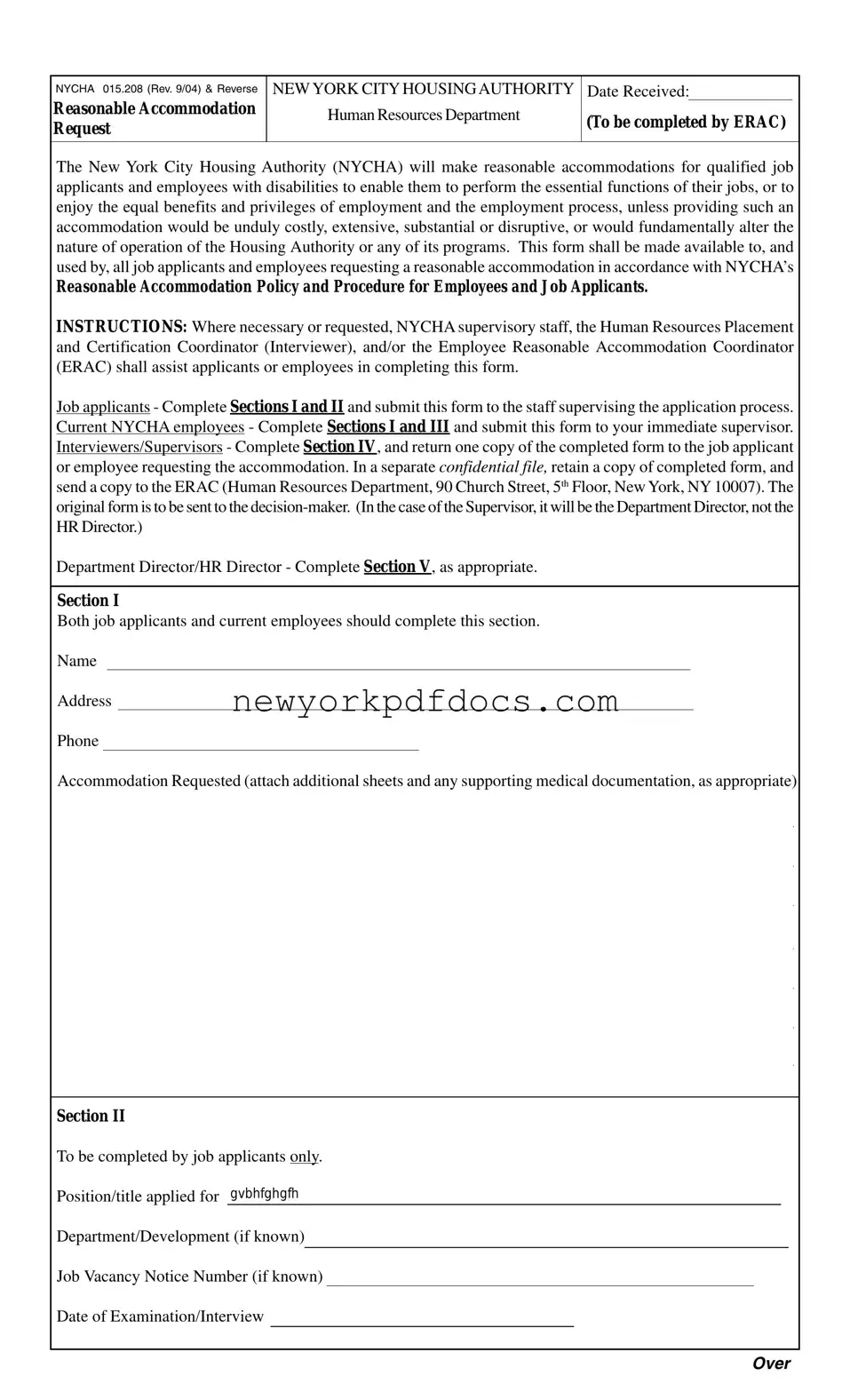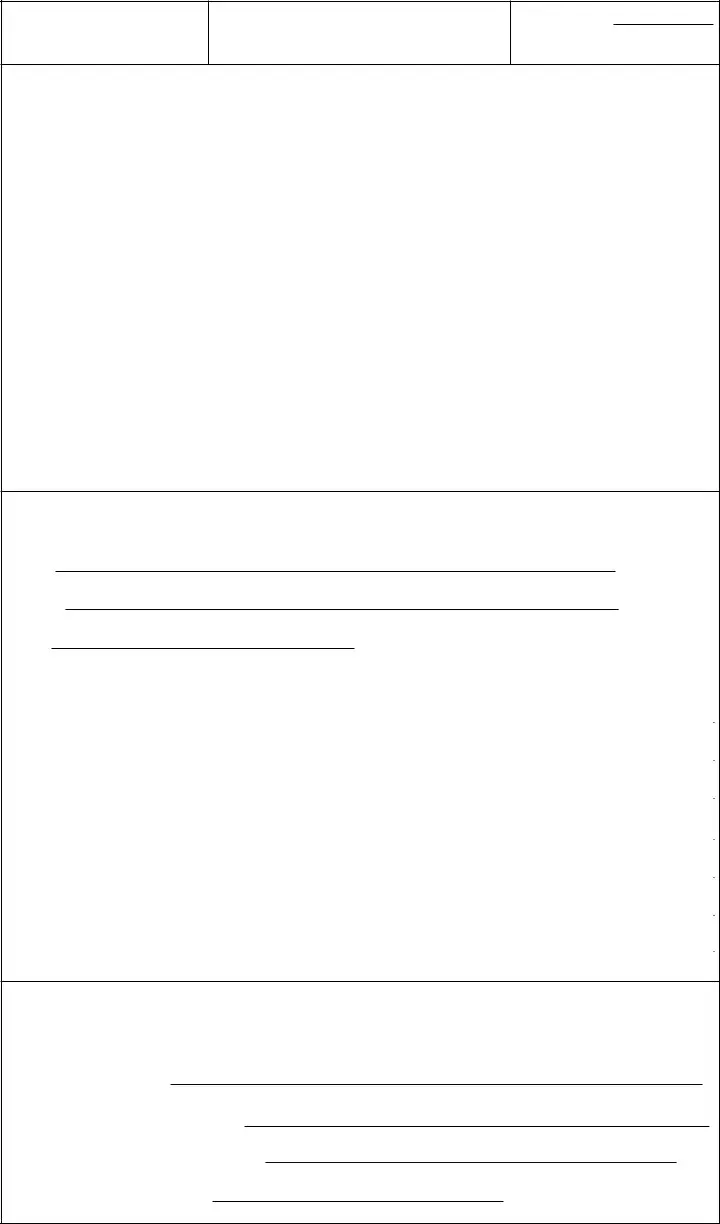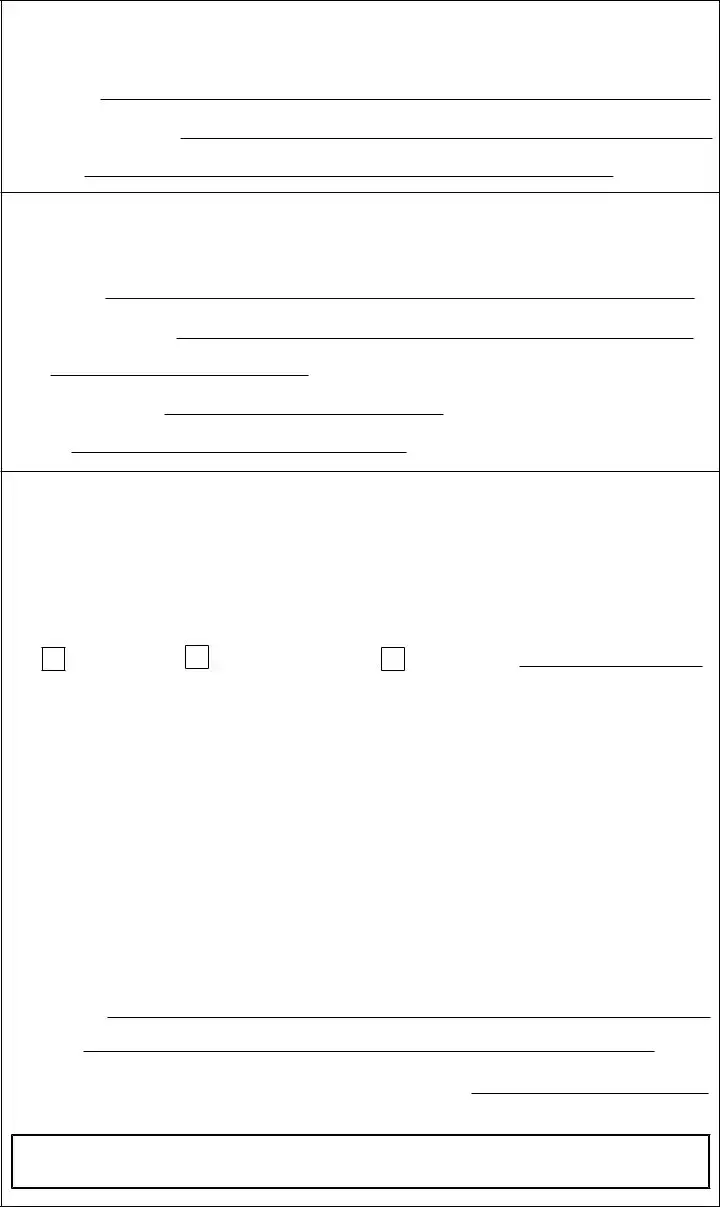Free Nycha 015 208 Form
The NYCHA 015 208 form is a document utilized by the New York City Housing Authority to facilitate requests for reasonable accommodations from job applicants and employees with disabilities. This form ensures that individuals can perform essential job functions or enjoy equal employment benefits, promoting inclusivity within the workplace. By following the outlined procedures, both applicants and current employees can seek the necessary support to thrive in their roles.
Open My Document Now

Free Nycha 015 208 Form
Open My Document Now
Your form isn’t finalized yet
Edit, save, and download Nycha 015 208 online with ease.
Open My Document Now
or
⇓ Nycha 015 208 PDF


